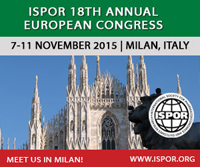Bayesian statistic methods and theri application in probabilistic simulation models
DOI:
https://doi.org/10.7175/fe.v8i1.251Keywords:
Bayesian statistic methods, Probabilistic simulation, Markov model, WinBUGSAbstract
Bayesian statistic methods are facing a rapidly growing level of interest and acceptance in the field of health economics. The reasons of this success are probably to be found on the theoretical fundaments of the discipline that make these techniques more appealing to decision analysis. To this point should be added the modern IT progress that has developed different flexible and powerful statistical software framework. Among them probably one of the most noticeably is the BUGS language project and its standalone application for MS Windows WinBUGS. Scope of this paper is to introduce the subject and to show some interesting applications of WinBUGS in developing complex economical models based on Markov chains. The advantages of this approach reside on the elegance of the code produced and in its capability to easily develop probabilistic simulations. Moreover an example of the integration of bayesian inference models in a Markov model is shown. This last feature let the analyst conduce statistical analyses on the available sources of evidence and exploit them directly as inputs in the economic model.Downloads
Published
2007-03-15
How to Cite
Iannazzo, S. (2007). Bayesian statistic methods and theri application in probabilistic simulation models. Farmeconomia. Health Economics and Therapeutic Pathways, 8(1), 5–13. https://doi.org/10.7175/fe.v8i1.251
Issue
Section
Methods
License
Authors who publish with this journal agree to the following terms:
- Authors retain copyright and grant the journal right of first publication with the work simultaneously licensed under a Creative Commons Attribution-NonCommercial 4.0 License that allows others to share the work with an acknowledgement of the work's authorship and initial publication in this journal.
- Authors are able to enter into separate, additional contractual arrangements for the non-exclusive distribution of the journal's published version of the work (e.g., post it to an institutional repository or publish it in a book), with an acknowledgement of its initial publication in this journal. The Publication Agreement can be downloaded here, and should be signed by the Authors and sent to the Publisher when the article has been accepted for publication in this journal.
- Authors are permitted and encouraged to post their work online (e.g., in institutional repositories or on their website) prior to and during the submission process, as it can lead to productive exchanges, as well as earlier and greater citation of published work (see The Effect of Open Access).
- Authors are permitted to post their work online after publication (the article must link to publisher version, in html format)






